The variety and reach of Google's projects is surprising, but not all of them have been successful. We remember and analyze.
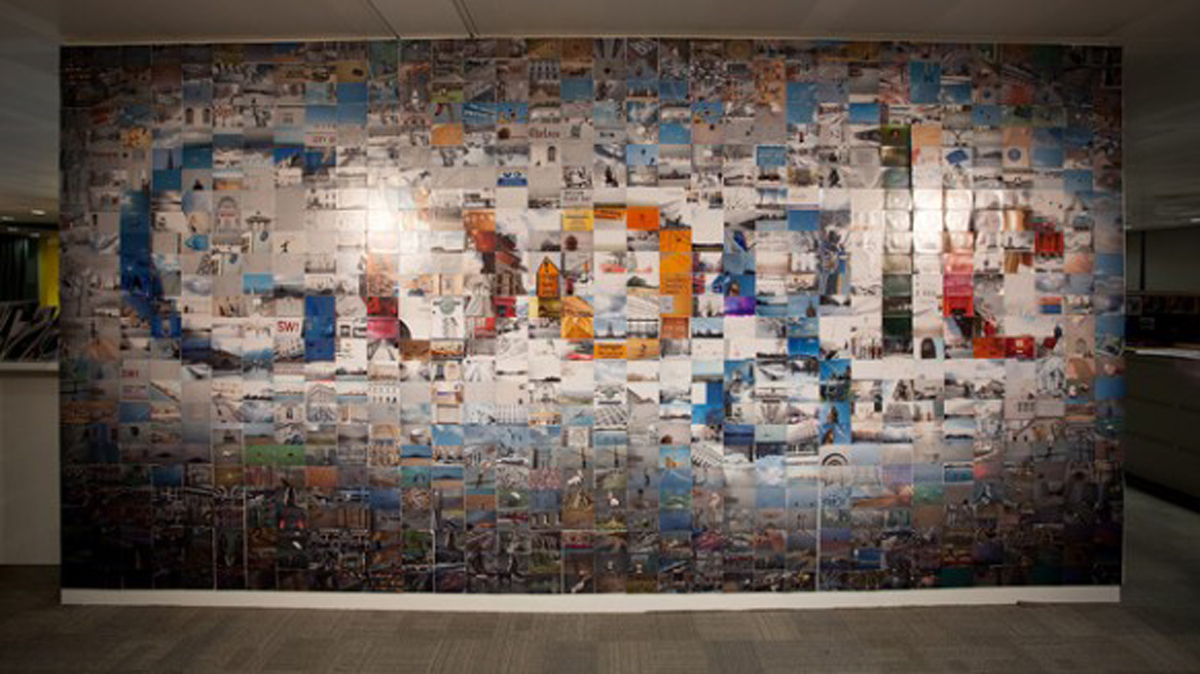
In everyday life, failures often lead to depression, but at Google they know how to learn positive lessons from them and are not afraid to take risks. For 17 years in the history of the company there have been many such moments. We offer you a list of the biggest failures, in our opinion.
- Google X (2005-2005)
- Google Answers (2002-2006)
- Search in Google Catalog (2002-2009)
- Google Web Accelerator (2005-2008)
- Google video
- iGoogle (2005-2013)
- Google Reader (2005-2013)
- Dodgeball (2005-2009)
- Audio and print ads from Google (2006-2009)
- Google Notebook (2006-2011)
- Jaiku (2007-2012)
- Google Health (2008-2011)
- Google Wave (2009-2010)
- Google Buzz (2010-2012)
Google X (2005-2005)
No, we are not talking about the company's secret laboratory, which is constantly working on innovative projects, such as Loon, Wing, Glass, self-driving cars, etc. In 2005, under this name, a strange collaboration was released Apple and Google, which changed the look of the Google home page by adding dock icons Mac OS X to it.
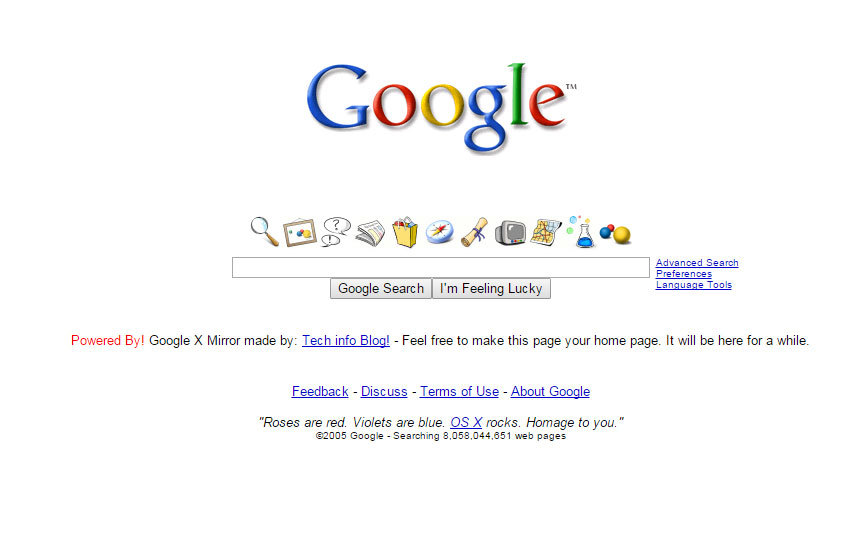
However, Google X only lasted one day online. For history, the page is saved here.
Google Answers (2002-2006)
Another strange initiative, in which users were invited to post questions of interest to them. Answers were charged between $ 2 and $ 200. Paid answers. On a free search engine. Everything is clear without further ado. The project was closed in 2006. The most popular question was 'what is the meaning of life?'
Search in Google Catalog (2002-2009)
The service offered its users to study thousands of digitized catalogs. A very controversial move for a search engine, because users who make purchases through catalogs will buy less online. The service was closed with the following wording: 'Google Catalog search was not popular, unlike other products.' The service is now available for tablets.
Google Web Accelerator (2005-2008)
The product was created in order to reduce the time required to access the site after downloading it to the user's computer. In a strange way, Accelerator prevented the playback of YouTube videos, the problem was fixed after disabling the function. The Web Accelerator was supported until 2008, and you can still download it.
Google video
The homegrown video search engine within the walls of Google was positioned as a competitor to YouTube. In 2012, the project was revived in the Google Videos format.
iGoogle (2005-2013)
The custom version of the home page, popular among users, allowed adding pictures, widgets, quotes, and also had an incomprehensible hint of products in the title Apple. To the dismay of fans, iGoogle was ditched in 2013 in favor of Google+. Those interested can evaluate the appearance of the product here.
Google Reader (2005-2013)
Another project that many mourn for it: an RSS aggregator, whose support ended in 2013 due to a decline in user activity.
Dodgeball (2005-2009)
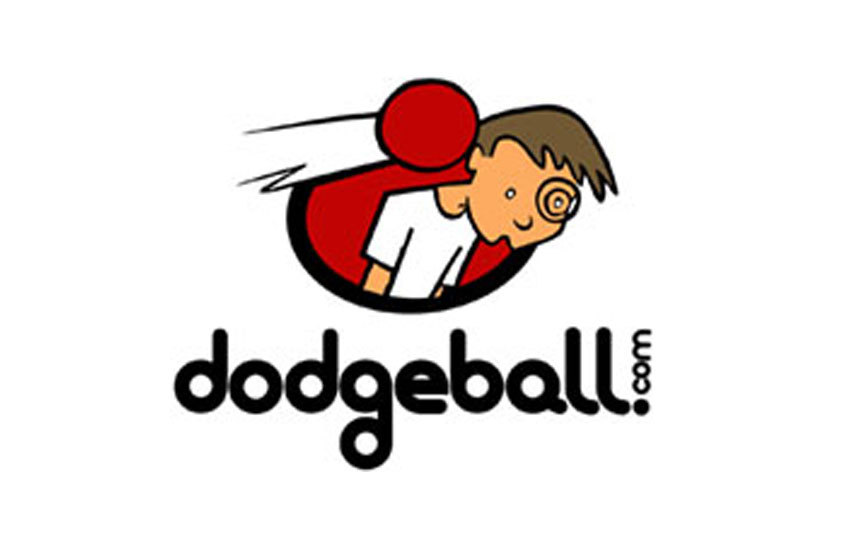
Support for Dodgeball, a mobile application for the social networking site of Foursquare, has ended with the app closing 4 years after the company purchased it. Dodgeball was replaced by Google Latitude, which was later included in other services.
Audio and print ads from Google (2006-2009)
A doomed cross-platform experiment in which Google tried to apply user information and metrics about their purchases to radio and print ads.
Google Notebook (2006-2011)
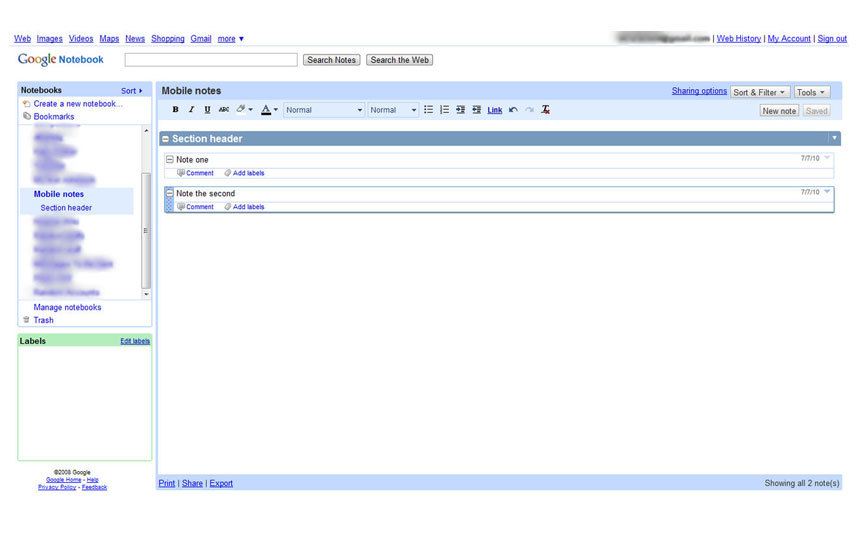
This was the name of a browser application, the idea of which was to put information in a personal notebook, which is especially useful in the context of research. The development of the project ended in 2009, support – in 2011, and in 2013 the Google Keep application replaced the service.
Jaiku (2007-2012)
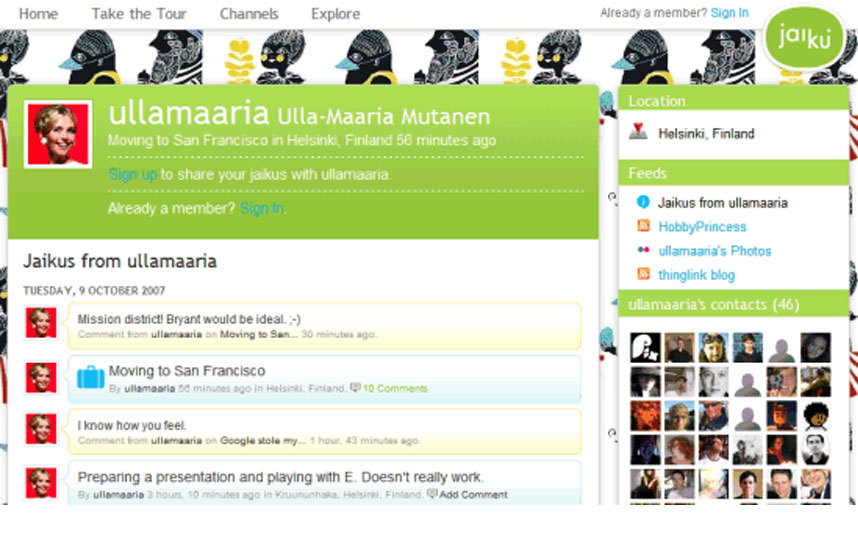
The Finnish microblogging site Jaiku was acquired by Google in 2007. Named after the haiku, which short posts on the site looked like, Jaiku did not receive the proper development and was finally closed in 2012.
Google Health (2008-2011)
This personal health information service helped users to receive information about their health status and predisposition to allergies by uploading their medical records to the service. Despite the fact that the information was provided by the users themselves, there were doubts about the security of personal data.
Google Wave (2009-2010)
The service combined the characteristics of social media and instant messaging. Google Wave could change the way we communicate in the digital world. However, users did not like the interface and the development of the project was closed after a year. In 2012, all Wave records were deleted.
Google Buzz (2010-2012)
The social media and microblogging tool Google Buzz was launched in 2010 and was closed two years later due to weak privacy and legal disputes.
Original material
Elir: Google is 17 years old, so the release of the Gazebo is dedicated to the history, or rather, to the company's failed projects. Despite the fact that many perceive such events as failure and admission of defeat, at Google only learns from such experiences and develops seemingly hopeless directions. From the standpoint of an ordinary user, I would like to wish the company a lot of new ideas and projects.
